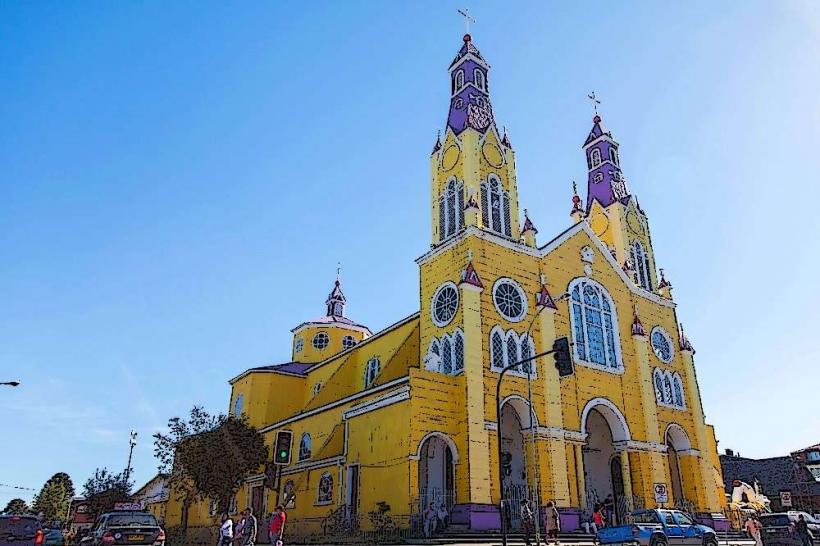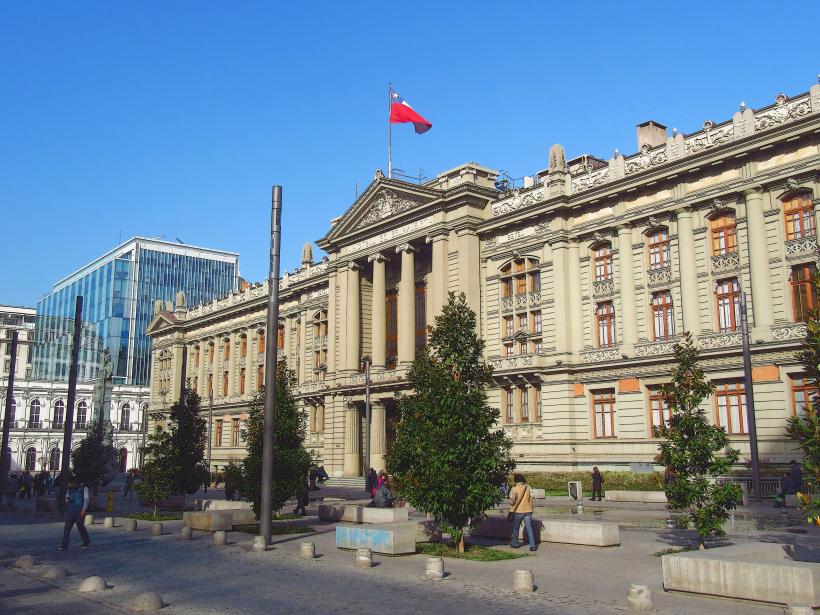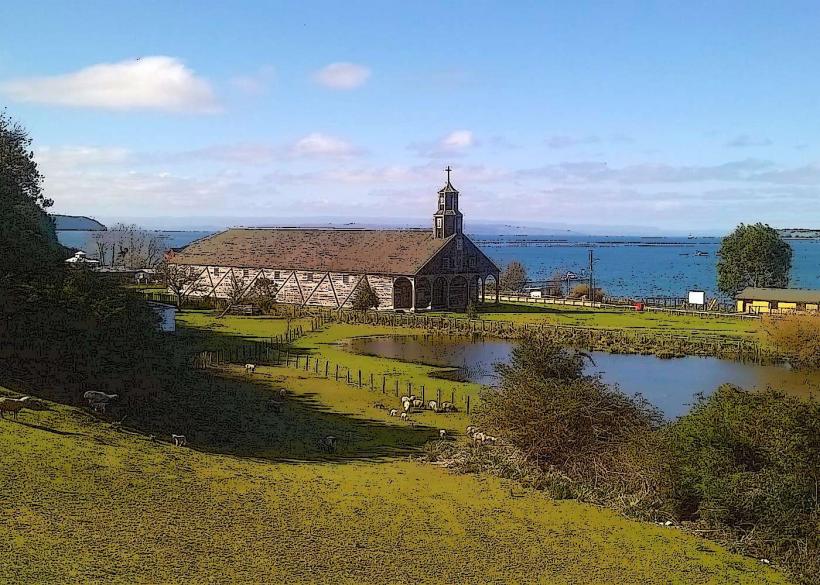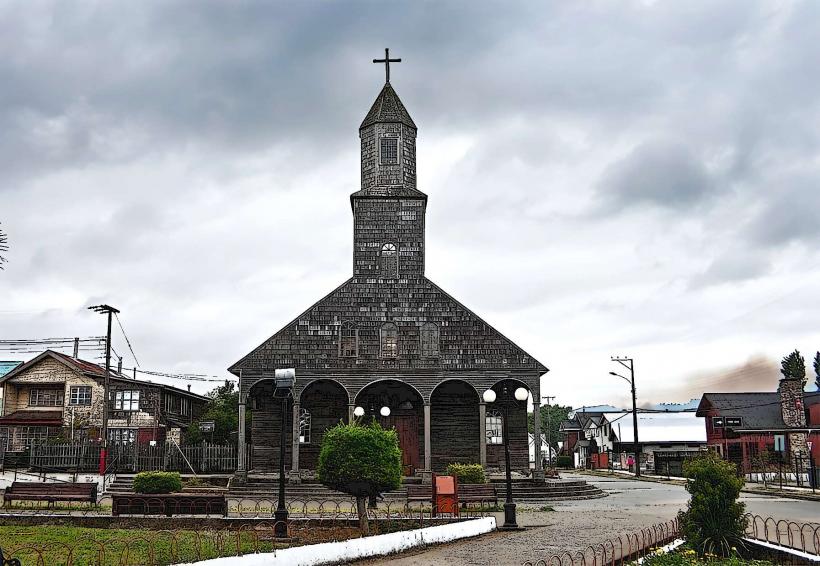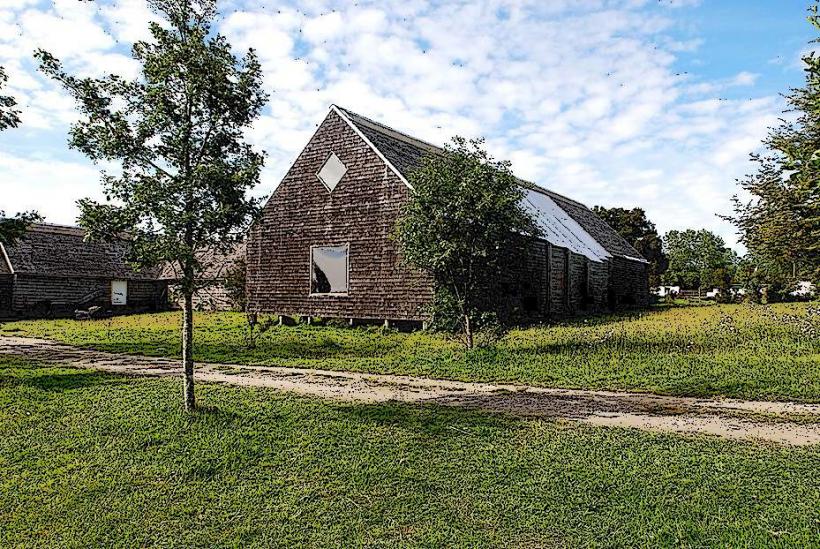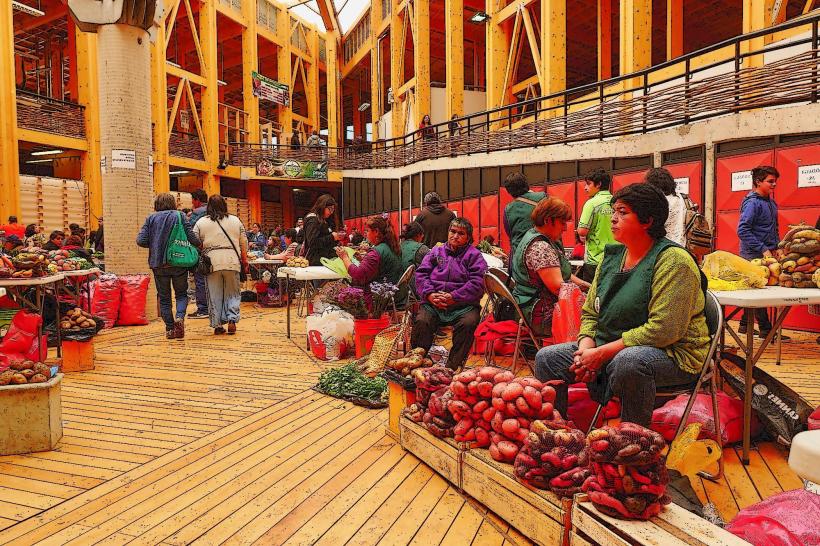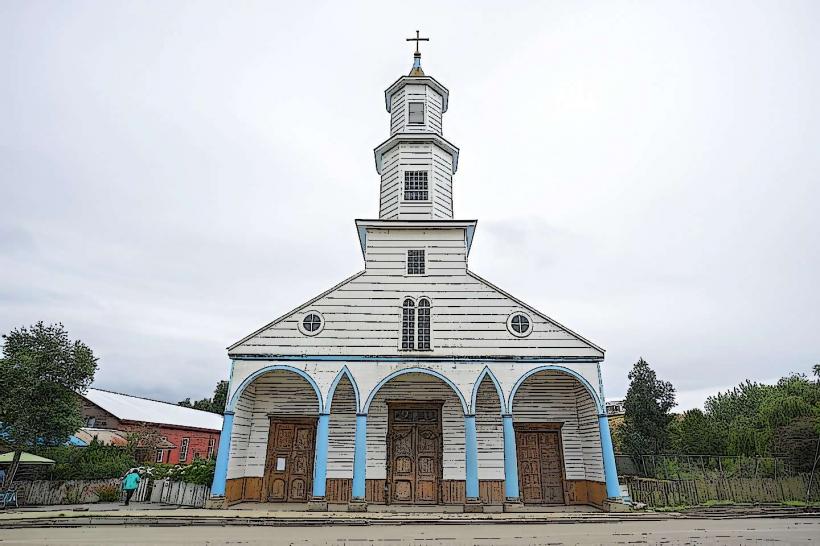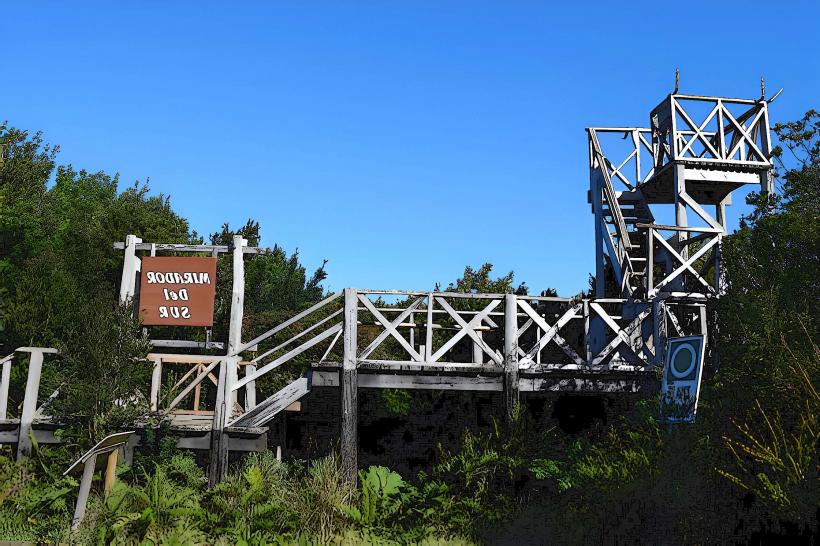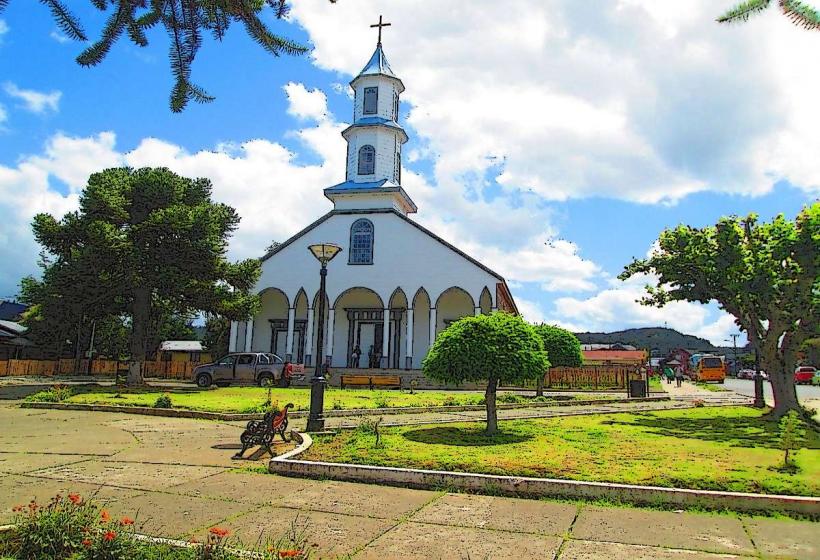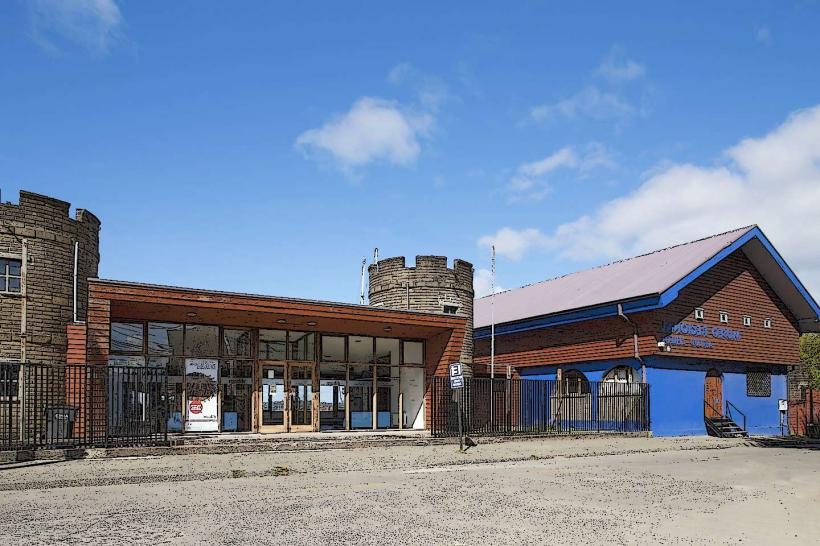Information
Landmark: Puente Colgante de ColoniaCity: Chiloe
Country: Chile
Continent: South America
Puente Colgante de Colonia, Chiloe, Chile, South America
Puente Colgante de Colonia (Colonia Suspension Bridge)
Puente Colgante de Colonia is a historical suspension bridge located in Colonia del Sacramento, Uruguay, which is a UNESCO World Heritage Site renowned for its colonial architecture and rich history. This bridge, built in the early 20th century, stands as a testament to the engineering feats of its time and the development of transportation infrastructure in the region.
1. Location and Historical Context
The Puente Colgante de Colonia is situated in Colonia del Sacramento, a picturesque city on the southern coast of Uruguay, along the Rio de la Plata. Colonia is known for its well-preserved colonial architecture and its history as a Portuguese and Spanish settlement. The bridge, completed in 1910, was part of a broader effort to improve transportation and trade in the region during the early 20th century.
The bridge spans the Canal de los Portugueses, a narrow body of water that separates the old town from the modern areas of Colonia del Sacramento. It serves as a physical reminder of the city's development and its importance as a port and trade hub between Uruguay and Argentina.
2. Design and Engineering
The Puente Colgante de Colonia is an iconic suspension bridge that was designed to facilitate the movement of people, goods, and vehicles between different parts of Colonia del Sacramento. Its design is representative of early 20th-century suspension bridges, combining aesthetic appeal with functionality.
a) Engineering Features
- Length: The bridge spans about 300 meters across the canal, providing a vital connection between the old town and newer areas of the city.
- Structure: The bridge is a classic suspension design, with cables supporting a deck that allows for the passage of both pedestrians and vehicles.
- Materials: The bridge is made of steel, which was common for bridges of that era, providing strength and durability to withstand the weight of traffic and the challenges of the local environment, including the winds from the nearby river.
The suspension system and the use of steel cables were engineering marvels of the time and remain a significant feature of the bridge's enduring design.
3. Importance to Colonia del Sacramento
The Puente Colgante played a significant role in the development of Colonia del Sacramento as a city, especially during the early 20th century when it was an important port. Before the bridge was built, residents and merchants had to rely on ferries or small boats to cross the canal, which was often a slow and unreliable method.
The construction of the bridge dramatically improved accessibility and connectivity, facilitating the movement of goods and people and helping to spur the city's economic growth. It also improved access to the port, which was essential for trade and commerce, particularly with neighboring Argentina.
4. Architectural and Cultural Significance
In addition to its practical role, the Puente Colgante de Colonia is an architectural and cultural landmark in Colonia del Sacramento. Its elegant design and prominent location near the water make it an attractive feature of the city's landscape, especially when viewed from the old town or from the shores of the canal.
As part of the UNESCO World Heritage Site of Colonia del Sacramento, the bridge is an important cultural artifact, representing the city's historical evolution from its colonial roots to the modern era. It symbolizes the blend of European architectural influences and local engineering innovations that characterize Colonia’s historical landscape.
5. Preservation and Current Use
Although Puente Colgante de Colonia is no longer the main route for vehicular traffic (which now uses modern bridges), it remains an important tourist attraction and a historic symbol of the city's past. The bridge is still in use for pedestrian traffic and is part of walking tours of Colonia del Sacramento. Visitors often cross the bridge to take in panoramic views of the canal, the old town, and the surrounding areas, making it a popular spot for photos and sightseeing.
Over the years, efforts have been made to preserve the bridge and ensure that it remains structurally sound, while also maintaining its historical and aesthetic significance.
6. Visitor Experience
Visitors to Colonia del Sacramento can explore the Puente Colgante as part of a broader experience of the city’s historical district. Colonia is known for its cobblestone streets, colonial buildings, and charming atmosphere, all of which are enhanced by the presence of the bridge.
a) Sightseeing
Walking across the bridge offers spectacular views of both the historical center of Colonia del Sacramento and the surrounding landscapes. The Rio de la Plata and the canal create a beautiful backdrop for photos, and the bridge itself adds to the charm of the city’s coastal setting.
b) Guided Tours
For those interested in learning more about the history and significance of the bridge, guided tours are available. These tours often explore the bridge’s construction, its cultural importance, and the role it played in shaping the development of Colonia del Sacramento.
7. Conclusion
The Puente Colgante de Colonia is more than just a bridge; it is a vital piece of Colonia del Sacramento's history, serving as a link between the city’s colonial past and its modern-day identity. Its design, engineering, and historical significance make it one of the most important landmarks in the region.
As part of the UNESCO World Heritage Site, it stands as a symbol of the city’s rich cultural heritage and an important reminder of the past. Today, the bridge continues to serve as a tourist attraction, offering visitors a chance to step back in time and appreciate both the engineering feats of the early 20th century and the enduring beauty of Colonia del Sacramento.

